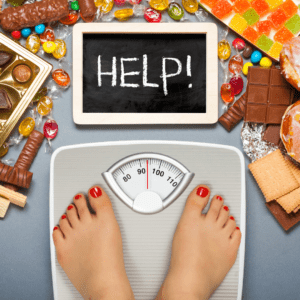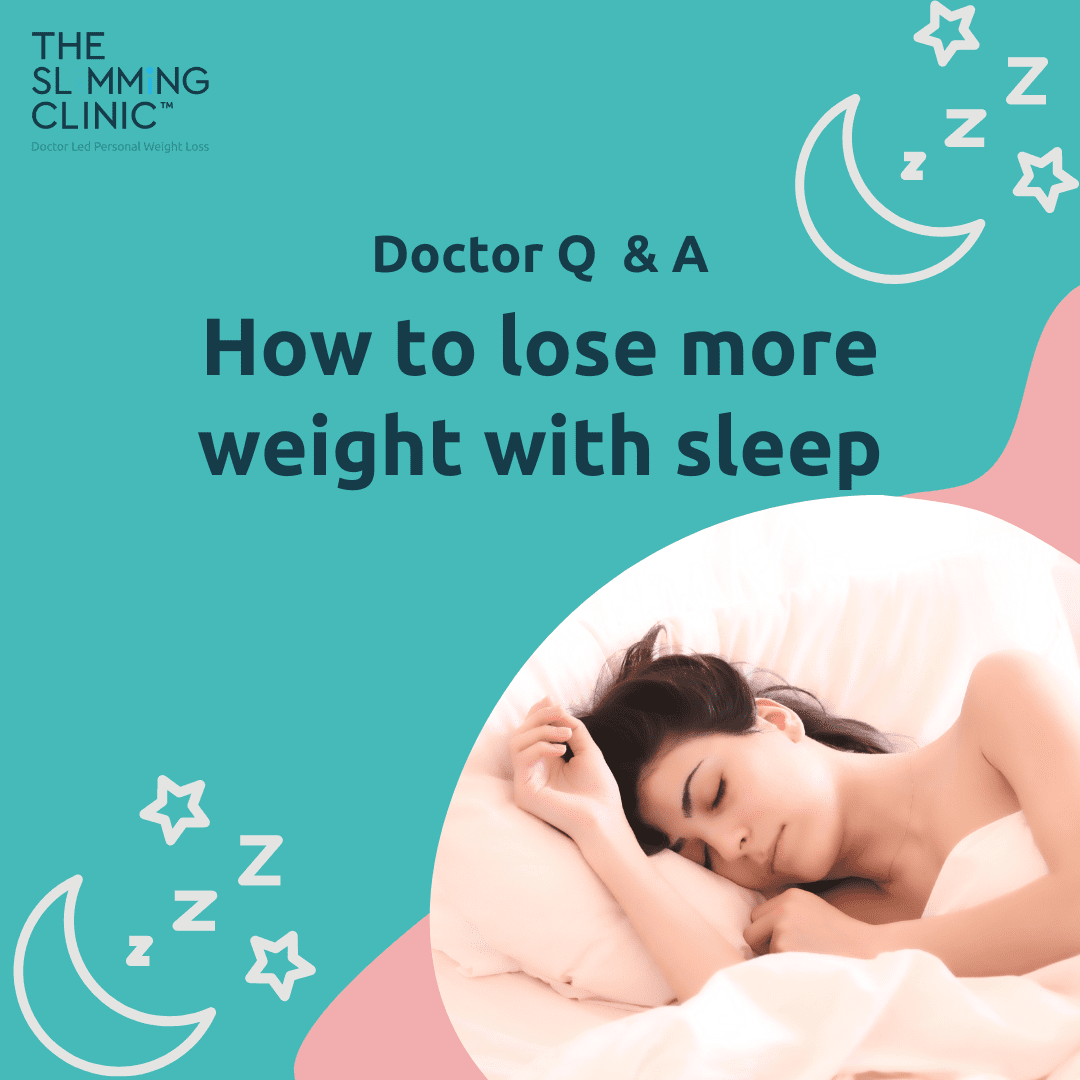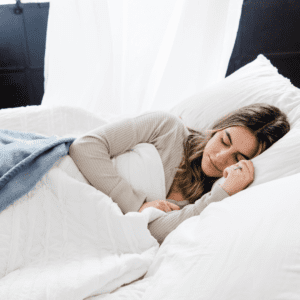Did you know that the amount of sleep you get each night can directly affect your diet and weight loss journey?
People who get less sleep tend to weight more and find losing weight harder, than those who are getting a good amount of sleep each night, even if they are following the same weight loss diet plan.
We spoke to Dr Jane Glazebrook, who has answered some of our questions about sleep and how we can ensure we get enough sleep to support our weight loss.
What is the importance of getting a good night’s sleep?
Getting a good night’s sleep is really important for maintaining good health and well-being.
Getting enough, good quality sleep helps protect your physical and mental health.
The duration of sleep requirement varies between individuals. The general guidance for an adult is 7-8 hours.
What is the link between poor sleep and our weight?
The link between poor sleep and our weight is startling – there is overwhelming evidence that as our hours of sleep go down, our weight goes up.
It also doesn’t take a long time or a lot of sleep deprivation to cause the weight gain
One study showed that just one week of sleeping 5 hours per night (compared to the recommended 7-8 for an adult) led to participants gaining an average of 2 pounds.
Why does less sleep make us gain weight?
Getting less sleep makes you gain weight because it negatively affect your willpower, meaning that your brain makes more impulsive, comfort-based decisions.
A sleepy brain and body also produce more of the stress hormone, cortisol, which, combined with ghrelin means you’ll crave more food than you normally would and will need more food to feel satisfied and dull the cravings.
Unfortunately, cortisol doesn’t make you crave nice, healthy things either. Cortisol triggers the reward centre in your brain, which means that sugary or salty foods are on the menu, so you might find yourself reaching for higher-calorie snacks, rather than your fruit or veggies.
When you’re really tired, do you find yourself reaching for snacks higher in fat than you do if you’re more awake? Or convenient, ready-made foods that are full of calories and additives as you’re too sleepy to make something healthier and heartier?

How can we get ourselves into better sleeping habits?
The good news is, it isn’t too had to get into better sleeping habits to help your weight loss diet.
I often ask my patients to keep a sleep diary or track their sleep using a fitness band for a couple of weeks.
It’s helpful to register how alert and rested you feel in the morning and how sleepy you feel during the day.
 This can help you and your doctor know if you are getting the right amount and quality of sleep.
This can help you and your doctor know if you are getting the right amount and quality of sleep.
If you routinely lose sleep, the sleep loss adds up. The total sleep lost is called your sleep debt
In order to catch up on sleep debt, lots of us take to napping.
However, a 20-minute power nap may provide a short-term boost in alertness, but it doesn’t give you the full sleep cycle and all the benefits of a night-time sleep.
I therefore try and discourage my patients from daytime napping.
Sleeping more on your ‘days off’ can help you feel better, but it disrupts your body’s sleep-wake (circadian) rhythm.
I advise my patients to improve their sleep by going to bed and getting up at the same time every day, even on the weekends. If this is too much of a stretch, try to only adjust your sleep pattern by up to an hour.
What would you recommend we do before bed to prepare for a good night’s sleep?
To prepare for a good night’s sleep to support our weight loss diet, the first thing I recommend is to set yourself a bedtime and try to make it part of your routine.
Use the hour before bed for quiet time, avoid bright artificial light and limit screen time. The blue light emitted from TV, computer and personal devices such as iPads blocks the production of melatonin (sleep inducing hormone) in our brain.
Avoid nicotine and caffeine (including caffeinated soda, coffee, tea, and chocolate). The effects of caffeine can last as long as 8 hours. So, a cup of coffee in the late afternoon can make it hard for you to fall asleep at night.
Avoid strenuous exercise before going to bed. The stimulating effect of exercise along with the rise in body temperature can interfere with falling asleep. However, keep up with general activity and exercise during the day!
Some evidence shows that eating certain foods before going to bed can help with sleep. However, eating a large meal or food rich in fat can cause acid reflux and heart burn disrupting sleep. Leave at least 2 hours for your food to digest before going to bed.
Contrary to popular belief, alcohol consumption actually has a negative effect on our sleep patterns. We may fall asleep quicker, but it reduces the amount of REM sleep we get. (Alcohol avoidance is recommended with The Slimming Clinic treatment programs, especially with any prescription medication.)
‘Switching off’ from the day, relaxation techniques and meditation to help us mentally wind down can improve sleep. A helpful tip is to write down all the things you want to remember or need to do before you go to bed so you don’t ruminate on them as you try and fall asleep.
However, what is important to remember about sleep, weight loss cannot be achieved simply by getting a healthy amount of sleep.
A good weight loss diet is key to helping you achieve your goals and getting into a healthy BMI and weight for you.
If you’re struggling to get a decent amount of sleep a night or you want help getting better sleep to help your weight loss, book your Initial Video Consultation with a weight loss doctor, who can give advice and support on how to help you get back into good sleeping habits alongside finding a diet and exercise programme that will help you to lose weight and improve your health.
You can book your appointment online today, for an online EXCLUSIVE price of just £35 for a 50-minute online weight loss consultation with a weight loss doctor.
Book yours today and start your journey to better health and sleep!


